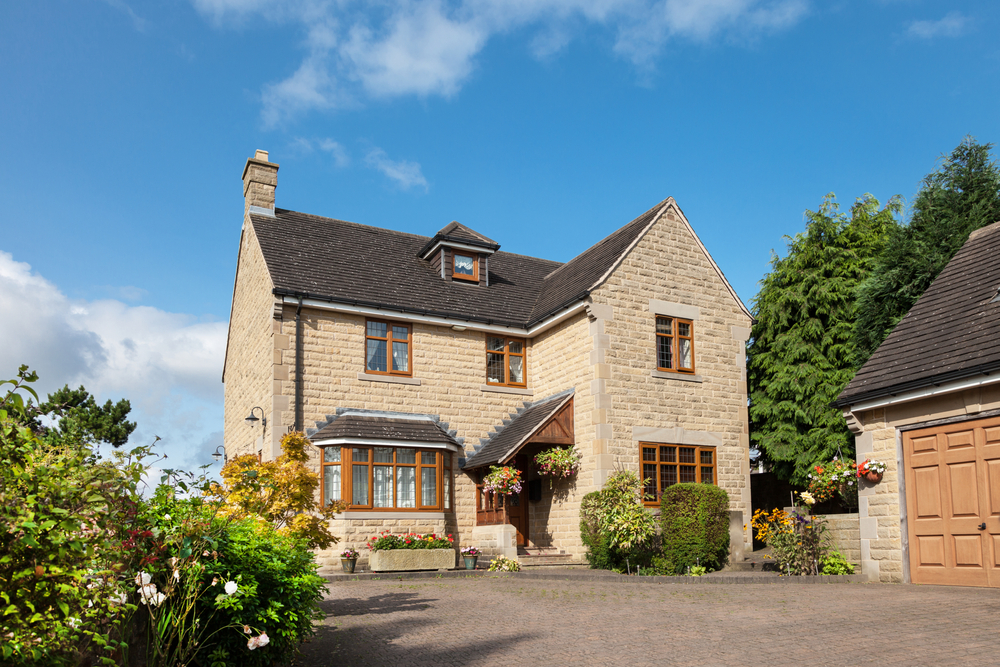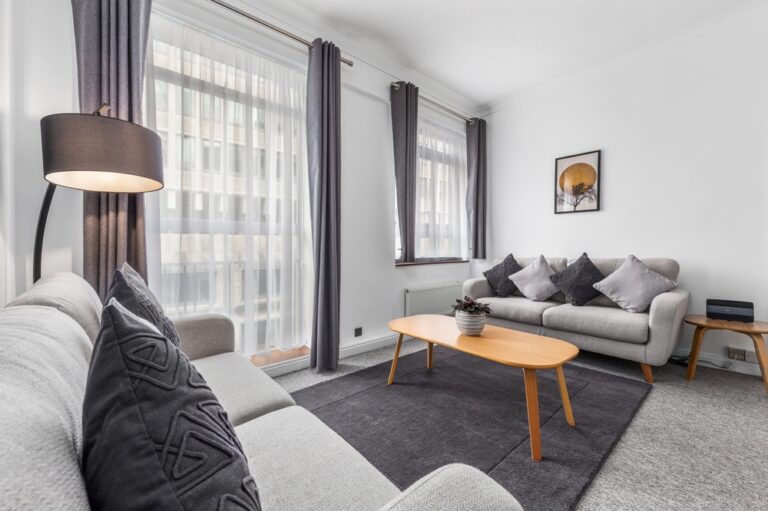If you’re looking for an alternative way to sell your home, auctions could offer the speed and certainty that traditional methods sometimes lack. Whether you’re in a hurry to move, managing a property in need of modernisation, or simply exploring your options, selling a house via auction can be a practical route.
This guide will take you through how the process works, the pros and cons, and why auctions are becoming more popular with sellers looking for serious buyers.
Related: How long does it take to sell a house?
Understanding how auctions work
Selling your home at auction means listing the property through an auction house, either in person or online, where potential buyers place bids within a set time frame. Once the bidding closes and the reserve price is met, the highest bidder secures the property with a legally binding contract.
Completion typically happens within a month, making it one of the fastest ways to sell. It’s especially appealing if you’re looking for a guaranteed sale without the common delays of private treaty sales.
When is auctioning your home a good idea?
There are several situations where auctioning your property makes sense. Properties in need of renovation tend to do well at auction, as they attract developers and cash buyers willing to take on a project. It’s also a useful option for unusual or hard-to-value homes that might struggle on the open market.
You may also want to consider auctioning if you’re selling a house with subsidence or another issue that might deter traditional buyers. Auctions allow you to be upfront about the condition, letting buyers make informed decisions from the outset.
Advantages of selling your home at auction
One of the main attractions is the speed and certainty. Once the hammer falls, there’s no room for gazumping or gazundering. The sale is binding, and the buyer must complete within a set timeframe, giving you confidence and clarity from day one.
Auctions also create a sense of urgency. Competitive bidding can push the final price up, especially if the property has been well marketed and priced to generate interest. Transparency is another plus – the bidding process is open and clear, with no hidden negotiations.
Buyers at auction are often seasoned investors, developers, or cash purchasers. They tend to come prepared, reducing the likelihood of delays due to mortgage issues or last-minute changes.
Related: Why brokers are more important now than ever
Things to consider before you sell
It’s important to go in with a clear understanding of the risks. Selling at auction does not guarantee a sale. If bidding fails to reach your reserve price, the property may go unsold, which could delay your plans.
Another consideration is the cost. Selling property at auction involves fees that you wouldn’t typically encounter in a traditional sale. These can include entry fees, catalogue listings, legal pack preparation, and a commission on the final sale price.
It’s also worth noting that some buyers at auction expect a discount, particularly if the property needs work. This can affect your potential return if you’re hoping to achieve full market value.
Steps to selling a house via auction
The first step is to get a valuation and decide on a guide and reserve price. The guide price is what attracts buyers, while the reserve is the minimum you’re willing to accept. It’s important to strike a balance between encouraging interest and protecting your bottom line.
Next, you’ll need a legal pack. This includes everything a buyer needs to know before bidding, such as title deeds, lease information, searches, and any planning documentation. If you’re selling a house with subsidence at auction, this is where any survey reports or related paperwork should be included.
Once everything is in place, the property is listed in the auction catalogue and promoted to buyers. On auction day, bidding takes place, and if the reserve is met, the sale is confirmed. The buyer pays a deposit straight away and agrees to complete the purchase within the agreed period.
Related: Pricing your home right: A comprehensive market guide
Costs to factor in
The cost of selling your house at auction can vary depending on the auctioneer, but there are a few common charges. Entry fees are usually a fixed amount for listing your property, while marketing fees may apply for promotional materials and catalogue placement. Commission is charged as a percentage of the sale price, often similar to or slightly higher than estate agent fees.
You’ll also need to cover the cost of preparing the legal pack, which is typically handled by a solicitor. These upfront costs can add up, so it’s important to factor them in when deciding if auction is right for you.
Getting the best result
If you’re serious about going to auction, preparation is key. Choose an experienced auctioneer with a strong track record and good buyer reach. Set a realistic reserve price that reflects the property’s market appeal. Present your property in the best possible light, even if it needs work – small touches like clearing clutter or tidying outdoor spaces can make a big difference.
Selling property at auction advice often focuses on timing too. Choose an auction date that allows enough time to prepare all legal paperwork and market the property effectively to the right audience.
Is auction right for your property?
Not every home is suited to auction, but for the right property and the right seller, it can be a smart move, and the key is to understand your goals. Do you need speed and certainty? Are you comfortable with the potential for a slightly lower sale price in exchange for a quicker process?
For some sellers, especially those dealing with vacant properties, inherited homes, or unusual assets, auction offers a refreshing alternative that cuts through the delays of traditional methods.
Expert support
At Parkers, we’ve helped many clients successfully sell their homes at auction, from developers offloading investment properties to homeowners needing a fast turnaround. We’ll guide you through the process with clear, practical advice and connect you with the right auction partners.
If you’re exploring your options or want to know more about the process, contact your local Parkers branch today, we’re here to help you make the most informed decision when selling your home.







